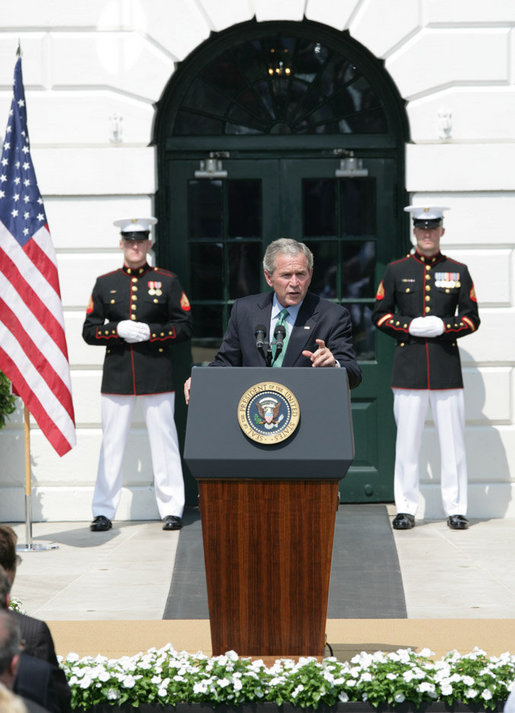
We’ve known for a while now that President Bush has every intention of leaving the Iraq mess for his successor to clean up, but today he made it official. At a speech this morning at the National Defense University in Washington, Bush announced the withdrawal of 8,000 U.S. troops from Iraq by January 2009, leaving 138,000 troops still in-country. Specifically, 3,400 combat support personnel will leave Iraq after their tours conclude over the next couple months; a Marine battalion will return to the States in November; and an Army brigade will come home in January. The reductions, says Bush, have been made possible by the success of the “surge.”
The troop reduction in Iraq will occur amidst a build-up of forces in Afghanistan, where a resurgent Taliban has gained continued strength in recent years. According to Bush’s plan, an additional 4,500 troops will head for Afghanistan in the next few months, including some units that had been scheduled for Iraq deployments. The war in Afghanistan is more popular among Americans than the Iraq conflict, and Bush stands to gain from focusing more of his efforts there in the twilight of his presidency. But since U.S. commanders have said that a “surge” in Afghanistan would likely require at least 12,000 more boots on the ground, Bush’s offering seems as slim as it does late.
So agrees the National Security Network, which observed today in a press release that “the redeployment is so modest and will take so long to arrive that, effectively, the President remains fixated on Iraq—regardless of the larger implications for U.S. national security.” Military expert Brian Katulis of the Center for American Progress called Bush’s announcement “much ado about nothing,” adding that the Iraq surge that Bush hailed this morning “has produced an oil revenue-fueled, Shia-dominated central government with close ties to Iran, and these ruling parties in Iraq have shown few signs of seeking to compromise and share meaningful power with other Iraqis.”







